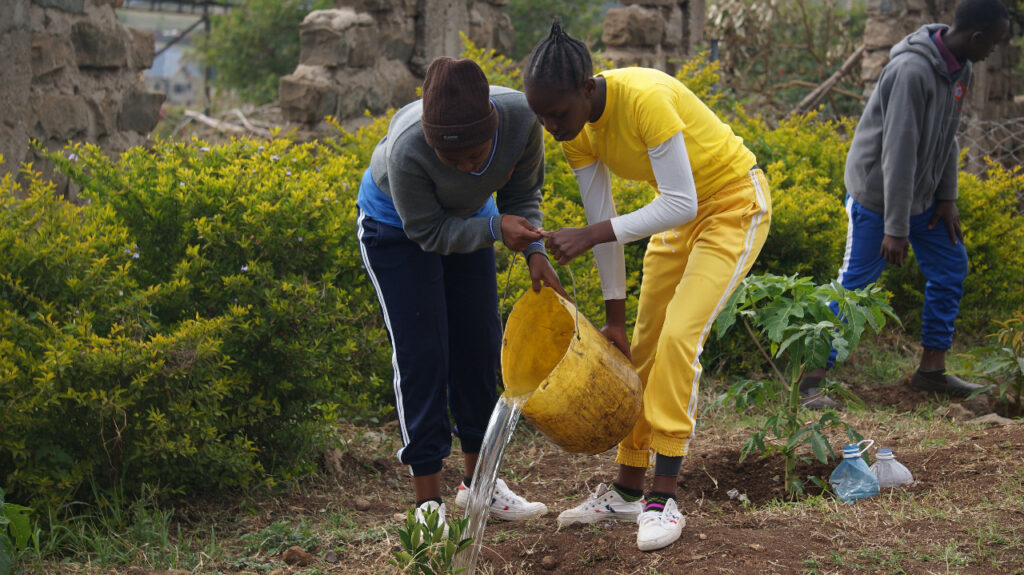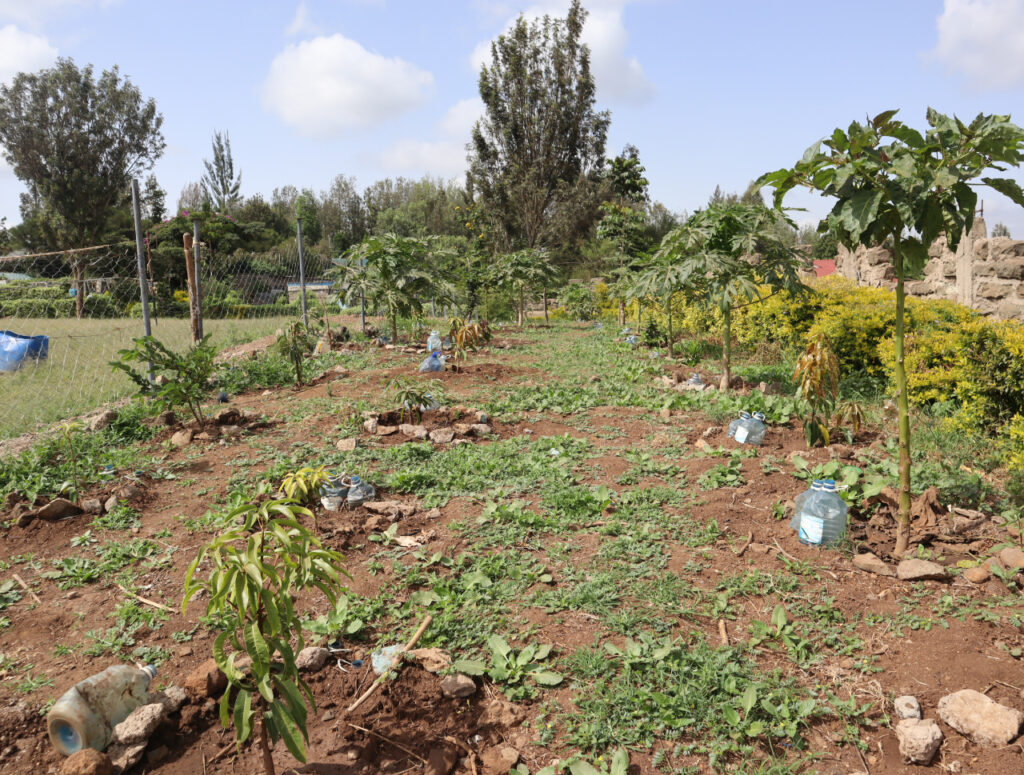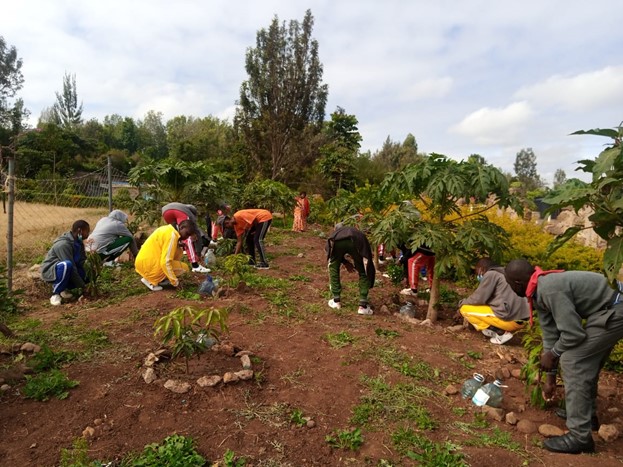By Tengetile Zanele Mphila
Kenya committed to restore 5.1 million hectares of land by 2030. This restoration commitment involves partnering with both state and non-state actors towards implementing various restoration practices, including tree planting, and growing initiatives that are aimed at inculcating a countrywide culture of nurturing trees. In efforts to participate in this initiative and upscale tree planting in schools, the Regreening Africa programme partnered with Trees4Goals (T4Gs), an initiative that was founded by Lesein Mutunkei a teenage boy who is championing for climate change by planting 11 trees for every goal he scores in football matches.
The partnership between Trees4Goals and Regreening Africa saw the planting of 500 trees in 5 schools in Kenya. On the 28th of October 2021, Regreening Africa and Trees4Goals planted 100 trees in Huruma Children’s Home and primary school.
The tree planting initiative was welcomed by both the teachers and the pupils in the school. Speaking during the launch of the tree planting initiative, the Director of the school, Mama Zipporah lauded the initiative not only good for the environment but also for its nutritional value for the children. “We are glad to have been chosen as one of the beneficiaries of this initiative. The fruits from the trees will boost the children’s nutrient uptake,” she said.
 Huruma school pupils nurturing trees. Photo: Regreening Africa/Tengetile Zanele Mphila.
Huruma school pupils nurturing trees. Photo: Regreening Africa/Tengetile Zanele Mphila.
Due to proper care, the trees have started bearing fruits, within a year after planting.
The two partners further rolled out the tree planting activities to four schools: Olooseos, Kipeto, Ilmasin, and Olchoro-Onyori primary schools in Kajiado county. There have been a lot of challenges in nurturing trees in these four schools as all of them are in a dry area. The last rainy season in Kenya was not adequate and the schools struggled to get water to irrigate the trees. This resulted in most of the trees dying since the only sources of water around the schools are boreholes and water is prioritized for drinking purposes.
Most of the schools are also not well fenced and lack security personnel to guard and nurture the trees, especially during school holidays making the trees susceptible to invasion by livestock from the neighboring communities.
 Adopting drip irrigation with bottles as an alternative method of watering trees. Photo: Regreening Africa/Tengetile Zanele Mphila
Adopting drip irrigation with bottles as an alternative method of watering trees. Photo: Regreening Africa/Tengetile Zanele Mphila
In a recent field visit to monitor the progress of the trees, Grace Koech a Junior Scientist at World Agroforestry Centre advised the teachers and pupils in the schools to use sticks and create boundaries around the trees to protect them from livestock. She also advised that they also adopt the drip irrigation using bottles as an alternative for using less water to water the trees. Grace emphasized the importance of involving the local community members and area chiefs in school tree planting efforts to create a sense of inclusion and communal ownership to eradicate challenges of livestock invasion and theft of the tree seedlings by the local community members. These are lessons that will be taken to future school planting efforts.
The Regreening Africa programme has been engaging youth in different initiatives in Kenya, including tree planting in schools, supporting soccer tournaments, and school fruit tree establishment to scale up regreening practices in their communities to ensure that they benefit from restoration initiatives. Young people have a greater potential to contribute to land restoration because of several reasons including their influence in society and social media, their large numbers in the population of many countries as well as their ability to come up with innovative ideas for land restoration.
This story was produced with the financial support of the European Union. Its contents are the sole responsibility of Regreening Africa and do not necessarily reflect the views of the European Union.

